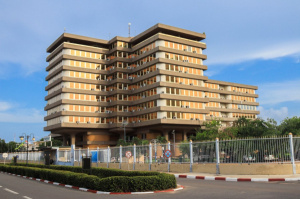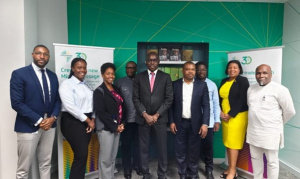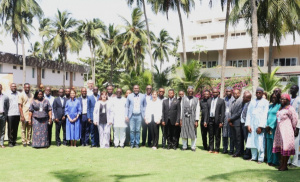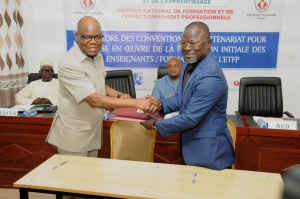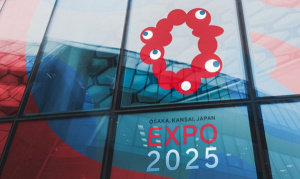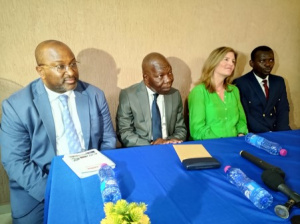Togo First
Togo Launches Digital Training Program Backed by the Commonwealth
With support from the Commonwealth, the Togolese Presidency has launched a digital skills training program for students, professionals, and executives. The initiative aims to enhance digital expertise in key sectors and is open to 200 applicants. Training will be delivered through the Simplilearn platform.
Participants must at least have a diploma affiliated with Togolese academic institutions, companies, or government offices. The application deadline is March 25, 2025. The program will run for eight weeks, ending in June 2025.
Courses offered will cover artificial intelligence (AI), cybersecurity, software development, technology project management, and digital transformation.
The initiative aligns with President Faure Gnassingbé’s strategy to boost Togo’s digital capabilities and position his country as a tech hub in West Africa.
This program also deepens Togo’s collaboration with the Commonwealth and advances its digital transformation agenda.
WAEMU Securities: Togo Raises CFA7.8 Billion in Latest Bond Issue
The Togolese treasury raised CFA7.8 billion on the West African Monetary Union (WAEMU) market last Friday, March 21. Lomé’s target for this operation–a simultaneous issue of fungible bonds (OAT)--was CFA15 billion.
Overall, 13 investors participated, submitting bids worth CFA17.8 billion, achieving a coverage rate of 119.01%, according to the WAEMU Securities Agency.
The OATs issued mature over three and five years, at interest rates of 6.25% and 6.50%, respectively. Togo plans to use this money to support its 2025 national budget, which totals CFA2,397 billion.
Including this last operation, Togo has raised CFA121.5 billion on the regional money market so far this year. This is close to half of its annual goal–CFA332 billion.
This article was initially published in French by Esaïe Edoh
Edited in English by Ola Schad Akinocho
Togo and Barbados Plan Afro-Caribbean Chamber of Commerce
Togo and Barbados teamed up to create an Afro-Caribbean Chamber of Commerce, Industry, Transport, and Tourism. Kovi Adanbounou, mayor of Agoè-Nyivé 1, made the announcement. This chamber will connect Africa, the Caribbean, Latin America, and the Middle East to drive trade and investment.
The move follows a Togolese business delegation's visit to Barbados from February 24 to 27, 2025. Mayor Adanbounou says this is part of a broader strategy to diversify economic partnerships and boost intercontinental trade.
Barbados will be a gateway for Togolese and African companies entering the Caribbean. In return, Togo will help Caribbean businesses expand into Africa.
Togo and Barbados started cooperating in 2024 by dropping visa requirements. This new chamber announces major opportunities in tourism, transport, trade, and industry, and should help Togo shine on the global economic stage.
Ayi Renaud Dossavi
Togo: SCHOOL AMU has raised CFA356 million by the end of January 2025
By the end of January 2025, Togo’s student health insurance program, SCHOOL AMU, had raised CFA356 million, according to the National Health Insurance Institute (INAM). This program, which replaced the School Assur initiative, is now part of the Universal Health Insurance (UHI) system.
SCHOOL AMU provides health coverage for pupils in public schools, ranging from nursery to secondary school. Each pupil is entitled to a maximum annual cover of CFA30,000. The scheme covers consultations, hospitalization, medical tests, pharmacy services, and minor surgeries at approved public health facilities.
Regional data highlights Plateaux and Savanes as the top beneficiaries. INAM reported that by January 2025, 213,411 treatment forms had been used under SCHOOL AMU. The Plateaux region recorded 73,141 consultations, costing CFA133.3 million, while Savanes followed with 70,250 forms used and expenditures totaling CFA105.1 million. Other regions benefiting include Maritime, Centrale, Kara, and Grand Lomé.
Nationwide, approximately 2.2 million pupils are eligible for state health coverage during the current school year. SCHOOL AMU was officially integrated into UHI in October 2024 after operating as School Assur since its launch in 2017.
Ayi Renaud Dossavi
Lomé Hosts Sub-regional Meeting on Urban Resilience
Togo’s capital, Lomé, is hosting a sub-regional workshop on urban resilience and climate risk management, convening experts in West Africa.
Organized by the German development agency GIZ, in collaboration with the African Union and the Decentralisation and Governance program (ProDeG IV), the event runs through March 20. Participants include representatives from ECOWAS, private industry, and academia.
The workshop comes as sub-Saharan Africa experiences rapid urbanization, straining infrastructure and housing while exposing cities to increasing risks from natural disasters and climate change.
Dr. Edoh Komla Théodore, Director of Cabinet at Togo’s Ministry of Urban Planning, underscored the stakes: “The strong growth of cities, while an economic opportunity, also exposes populations to increased risks, notably flooding, drought, and landslides.”
The opening session focused on strategies for sustainable urbanization, risk management, and financing resilience projects. Discussions also addressed regulatory frameworks and financial solutions to foster inclusive urban development.
Two additional workshops are planned. The second will examine participatory risk analyses and financing opportunities. The final session will focus on drafting concrete action plans to create urban models better equipped to withstand climate challenges.
The overarching goal is to combine local expertise with global best practices to shape cities that can adapt to an increasingly volatile climate.
Ayi Renaud Dossavi
Togo: Technical Education Gets a Boost with New Partnership
Togo has taken a major step forward in technical and vocational education. On March 18, 2025, four key institutions—Institut national de formation et de perfectionnement professionnels (INFPP), the Agence de l'Éducation-Développement (AED), the Centre régional de formation pour l'entretien routier (CERFER), and the Centre de formation aux métiers de l'industrie (CFMI) —signed a partnership agreement in Lomé to revamp the sector.
The agreement, outlined in 10 articles, focuses on three main areas: sharing expertise, providing necessary equipment, and offering market-driven training. The initiative aligns with Togo’s 2020-2025 government roadmap and Sustainable Development Goal 4, which promotes quality education.
The initial three-year pilot phase targets critical fields like refrigeration, civil engineering, air conditioning, car mechanics, and plumbing. This move was prompted by a lack of applications in recent teacher recruitment, as noted by Assedi Kossi Ikélé, Director at the Ministry for Technical Education.
Ikélé hailed the agreement as "a major step towards overhauling and improving the Togolese education system," emphasizing its role in enhancing quality education and workforce integration. INFPP Director Emile Kossi N'Guissan added that it supports Togo's 2018 education policy that promotes teaching excellence. “This partnership reinforces our commitment to ensuring quality education across the country,” he said.
Esaïe Edoh
Togo Gears Up for Osaka World Expo
Togo will participate in the 2025 Osaka World Expo which begins on April 13 and ends on October 13. Ahead of the event, the Togolese Ministry of Industry and Investment, in partnership with the Chamber of Industry and Commerce (CCI-Togo).
The session will provide critical information about the Expo, allowing participants to ask questions and receive practical advice. According to the committee overseeing Togo’s participation, it will be an opportunity for Togolese companies to grasp the challenges and advantages of this event while ensuring that the country is effectively represented.
The Osaka World Expo 2025, themed "Designing Future Society for Our Lives”, offers Togo a global platform to showcase its innovations, businesses, and ability to form strategic international partnerships.
This article was initially published in French by Esaïe Edoh
Edited in English by Ola Schad Akinocho
AfDB and Togo Launch Project to Reorganize Public-Private Partnerships
Togo is moving forward with the African Development Bank's Projet de Renforcement de l'Environnement PPP pour la Promotion des Investissements Privés (PREPIP) project, a program already implemented in several African nations. The Ministry of Economy and Finance announced that the Bank will provide CFA823 million to support this initiative.
The two-year project aims to strengthen Togo’s public-private partnership (PPP) framework to attract private investment. The focus will be on improving legal and institutional structures while training stakeholders involved in PPPs.
In line with these efforts, Togo will also introduce the Environmental and Social Management Plan (ESMP), designed to attract domestic and international investors.
The initiative will accelerate the work of "Unité PPP," a public-private partnership unit established in 2022. This unit advises government agencies on preparing and executing PPP contracts, ensuring effective collaboration with private entities.
The Togolese government seeks to boost the country’s competitiveness, diversify funding for strategic infrastructure projects, and improve living standards for the people.
This article was initially published in French by Esaïe Edoh
Edited in English by Ange Jason Quenum
Togo: World Bank to Help Set Up 12 New Community Justice Houses
The World Bank will support the establishment of 12 new community justice houses in Togo. Four of the houses will be in the Savanes region. The support was disclosed last week, during a visit of a World Bank delegation to the Agoè-Nyivé Community Justice House.
The delegation was led by Lisa Rosen, the Group's Vice President for Ethics and Internal Justice Services. They took the opportunity to observe how these justice houses operate and resolve minor disputes at a low cost.
Growing impact and adoption
Togo established the Community Justice House in 2018 to bridge the gap between traditional courts and local mediation systems. These structures reduce congestion in conventional courts and provide free, simplified access to justice. Roger Tagbé, Director of Access to Law and Justice, reported that referrals increased from 3,857 in 2022 to 5,518 in 2024. Recoveries also rose from CFA53 million in 2022 to CFA112 million in 2024. Mediation success rates improved from 85.80% in 2023 to over 90% in 2024.
Mipamb-Nahm-Tchougli, Togo’s Minister of Justice, emphasized that these improvements align with national priorities for accessible and efficient justice systems.
This article was initially published in French by Ayi Renaud Dossavi
Edited in English by Ola Schad Akinocho
Togo: Swiss Solar Firm MPower Secures €1.1M to Expand in Africa
MPower Ventures AG, a Swiss solar energy company active in several African countries, including Togo, has secured €1.1 million in funding from the Foundation for Clean Energy and Energy Inclusion in Africa (CEI Africa). The investment, a combination of equity and subordinated loans, aims to support MPower’s expansion across the continent.
The company plans to use the funds to strengthen its operations in Togo, where it already distributes solar products such as electric pumps, panels, security floodlights, and energy storage systems. With this boost, MPower intends to expand its distribution network and offer more financing options to make solar energy accessible to households and small businesses.
MPower operates in seven African countries and has sold over 50,000 units of solar equipment. The funding was secured in collaboration with crowdfunding platforms Klimja and Republic. Manuel Seiffe, MPower’s co-founder and CEO, emphasized the transformative potential of solar energy, stating: “Solar energy, coupled with appropriate financing solutions, is one of the most effective levers for stimulating economic development in sub-Saharan Africa.”
In Togo, the solar energy sector is growing rapidly, with companies like Kya Energy Group, SOLEVA, BBOXX-EDF, and CREFER also providing various solar solutions. With this new funding, MPower aims to solidify its position in this competitive market.
This article was initially published in French by Ayi Renaud Dossavi
Edited in English by Ange Jason Quenum


